Monopolies and Anti-Competitive Practices: A UK Business Law Report
VerifiedAdded on 2024/05/30
|12
|902
|156
Report
AI Summary
This report provides a comprehensive analysis of monopolies and anti-competitive practices in the UK, examining relevant legislation and the role of regulatory bodies such as the Competition and Markets Authority. It defines dominant positions within the EU common market, using GlaxoSmithKline as an example, and discusses instances where exemptions are made to potentially anti-competitive practices under EU law. The report concludes that monopolies and anti-competitive practices hinder fair trade, create market uncertainty, and restrict the availability of sellers, ultimately disrupting market equilibrium. References to relevant academic sources are also included.
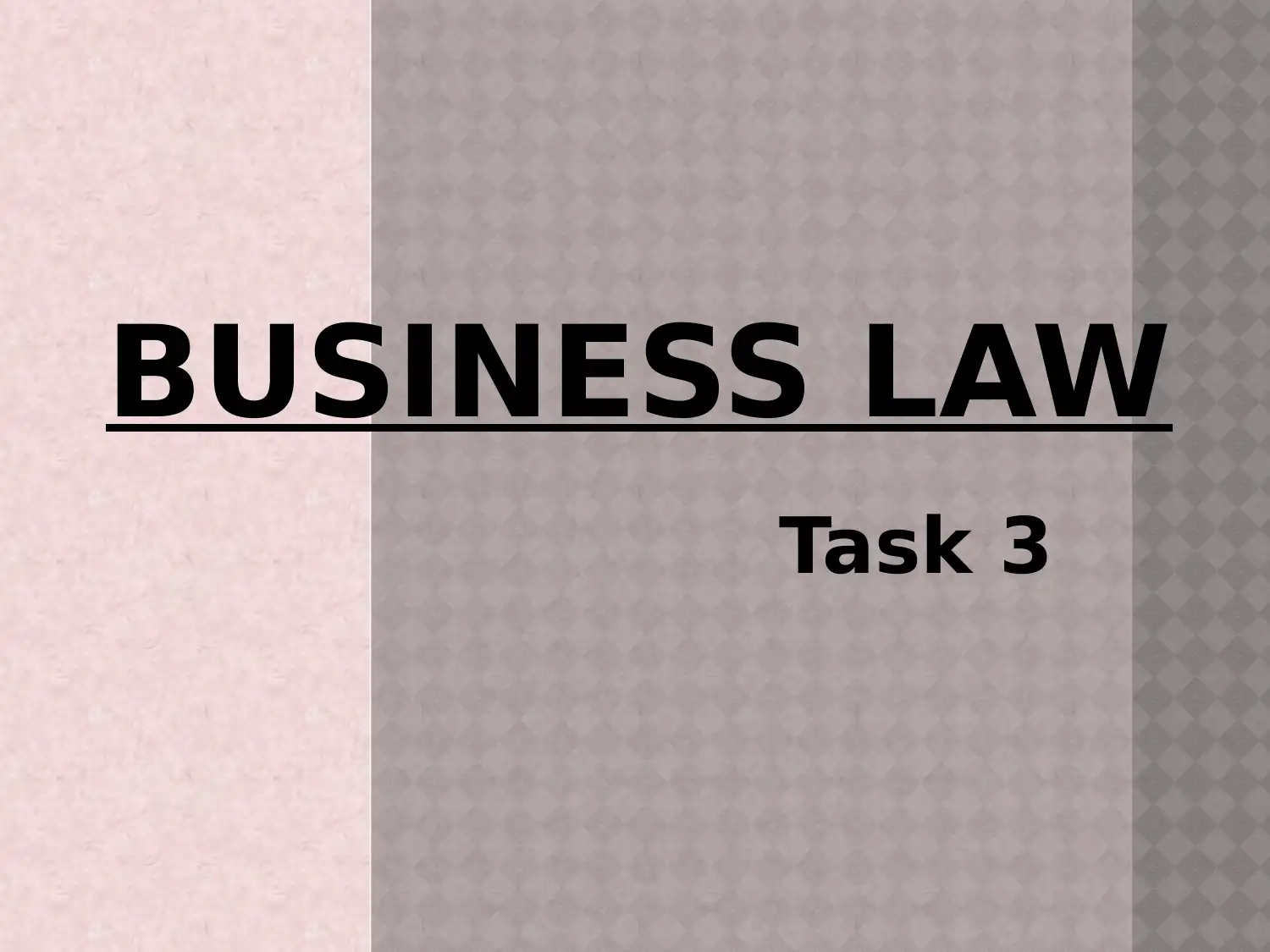
BUSINESS LAW
Task 3
Task 3
Paraphrase This Document
Need a fresh take? Get an instant paraphrase of this document with our AI Paraphraser
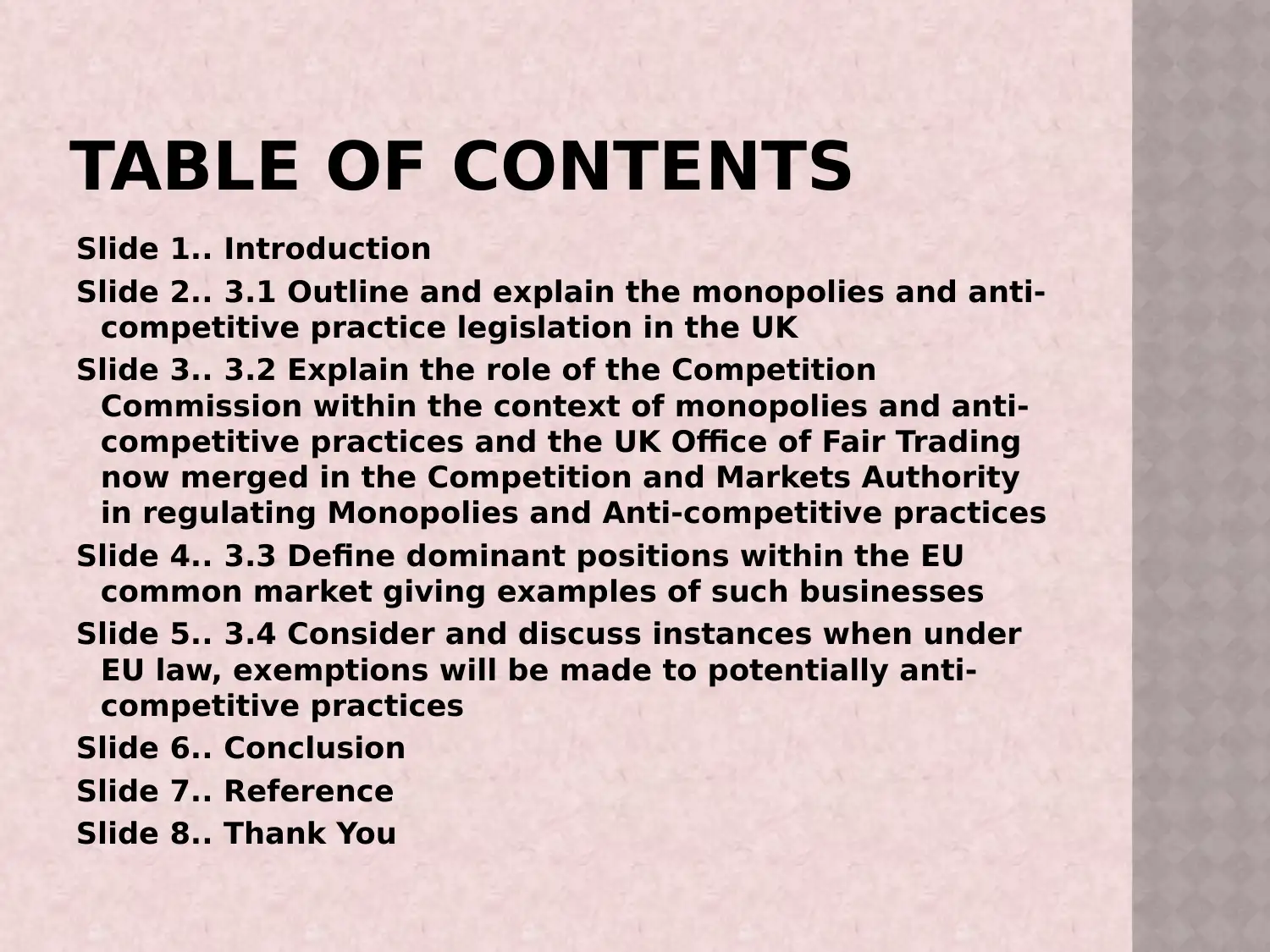
TABLE OF CONTENTS
Slide 1.. Introduction
Slide 2.. 3.1 Outline and explain the monopolies and anti-
competitive practice legislation in the UK
Slide 3.. 3.2 Explain the role of the Competition
Commission within the context of monopolies and anti-
competitive practices and the UK Office of Fair Trading
now merged in the Competition and Markets Authority
in regulating Monopolies and Anti-competitive practices
Slide 4.. 3.3 Define dominant positions within the EU
common market giving examples of such businesses
Slide 5.. 3.4 Consider and discuss instances when under
EU law, exemptions will be made to potentially anti-
competitive practices
Slide 6.. Conclusion
Slide 7.. Reference
Slide 8.. Thank You
Slide 1.. Introduction
Slide 2.. 3.1 Outline and explain the monopolies and anti-
competitive practice legislation in the UK
Slide 3.. 3.2 Explain the role of the Competition
Commission within the context of monopolies and anti-
competitive practices and the UK Office of Fair Trading
now merged in the Competition and Markets Authority
in regulating Monopolies and Anti-competitive practices
Slide 4.. 3.3 Define dominant positions within the EU
common market giving examples of such businesses
Slide 5.. 3.4 Consider and discuss instances when under
EU law, exemptions will be made to potentially anti-
competitive practices
Slide 6.. Conclusion
Slide 7.. Reference
Slide 8.. Thank You
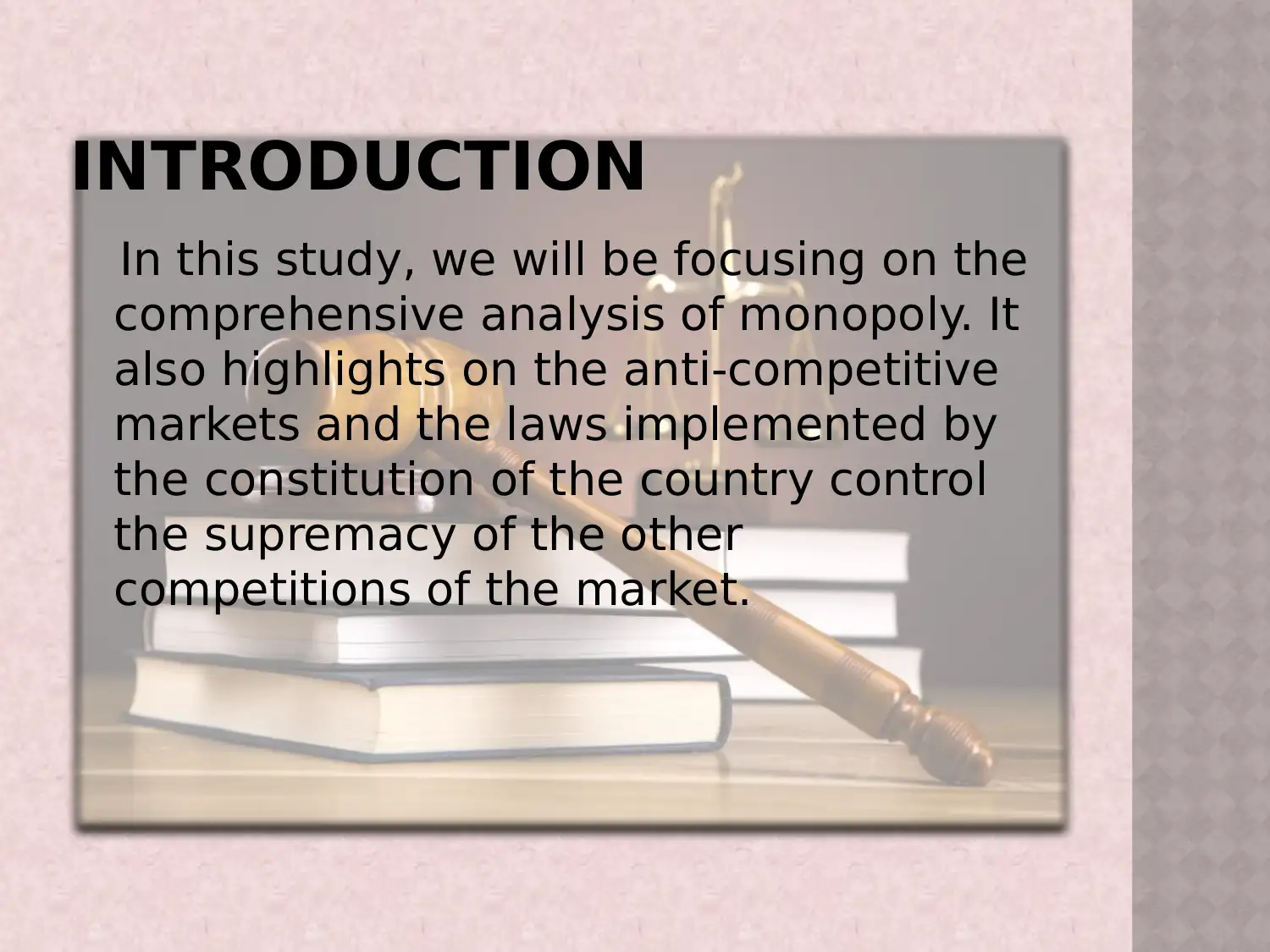
INTRODUCTION
In this study, we will be focusing on the
comprehensive analysis of monopoly. It
also highlights on the anti-competitive
markets and the laws implemented by
the constitution of the country control
the supremacy of the other
competitions of the market.
In this study, we will be focusing on the
comprehensive analysis of monopoly. It
also highlights on the anti-competitive
markets and the laws implemented by
the constitution of the country control
the supremacy of the other
competitions of the market.
⊘ This is a preview!⊘
Do you want full access?
Subscribe today to unlock all pages.

Trusted by 1+ million students worldwide
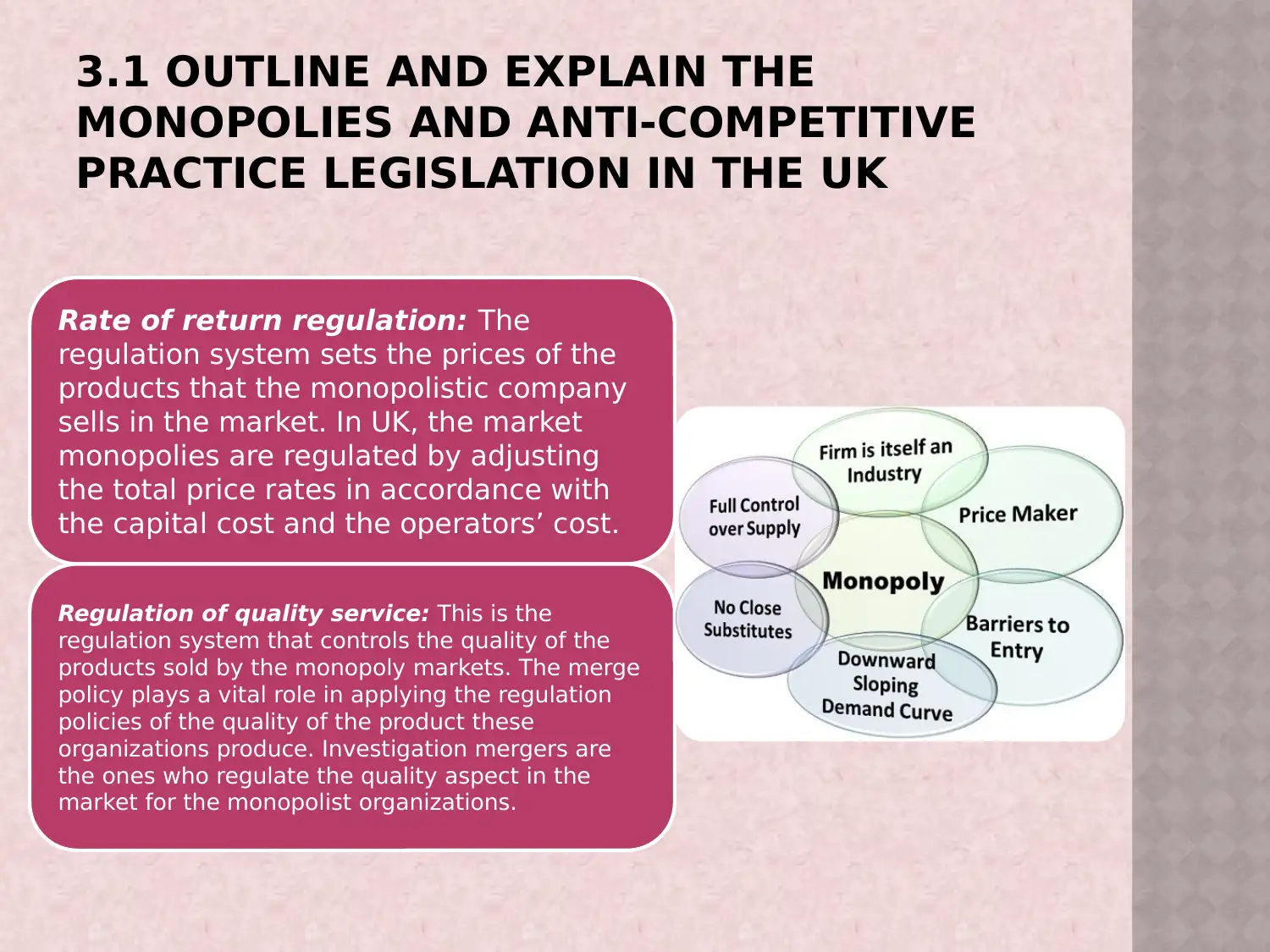
3.1 OUTLINE AND EXPLAIN THE
MONOPOLIES AND ANTI-COMPETITIVE
PRACTICE LEGISLATION IN THE UK
Rate of return regulation: The
regulation system sets the prices of the
products that the monopolistic company
sells in the market. In UK, the market
monopolies are regulated by adjusting
the total price rates in accordance with
the capital cost and the operators’ cost.
Regulation of quality service: This is the
regulation system that controls the quality of the
products sold by the monopoly markets. The merge
policy plays a vital role in applying the regulation
policies of the quality of the product these
organizations produce. Investigation mergers are
the ones who regulate the quality aspect in the
market for the monopolist organizations.
MONOPOLIES AND ANTI-COMPETITIVE
PRACTICE LEGISLATION IN THE UK
Rate of return regulation: The
regulation system sets the prices of the
products that the monopolistic company
sells in the market. In UK, the market
monopolies are regulated by adjusting
the total price rates in accordance with
the capital cost and the operators’ cost.
Regulation of quality service: This is the
regulation system that controls the quality of the
products sold by the monopoly markets. The merge
policy plays a vital role in applying the regulation
policies of the quality of the product these
organizations produce. Investigation mergers are
the ones who regulate the quality aspect in the
market for the monopolist organizations.
Paraphrase This Document
Need a fresh take? Get an instant paraphrase of this document with our AI Paraphraser
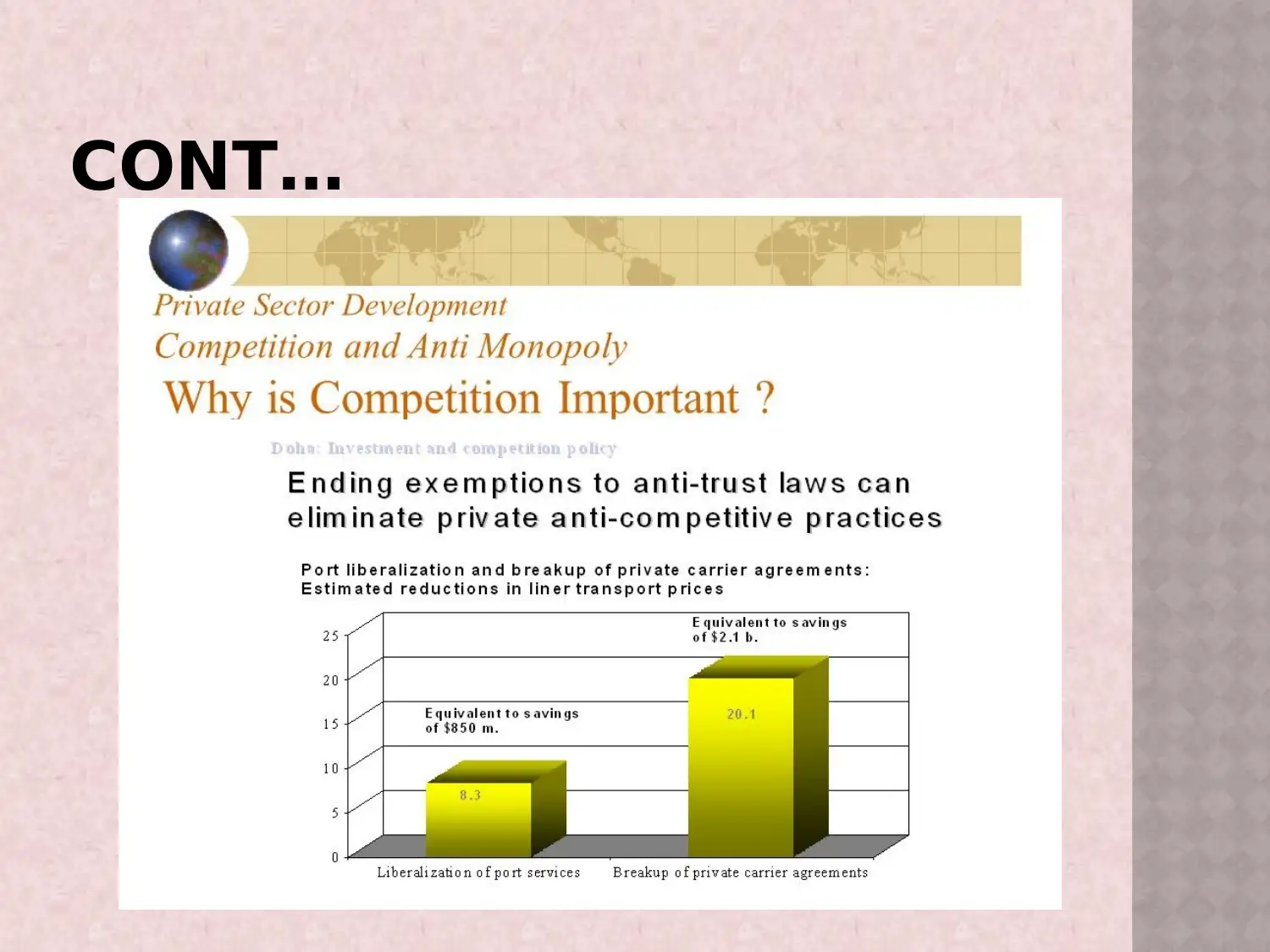
CONT…
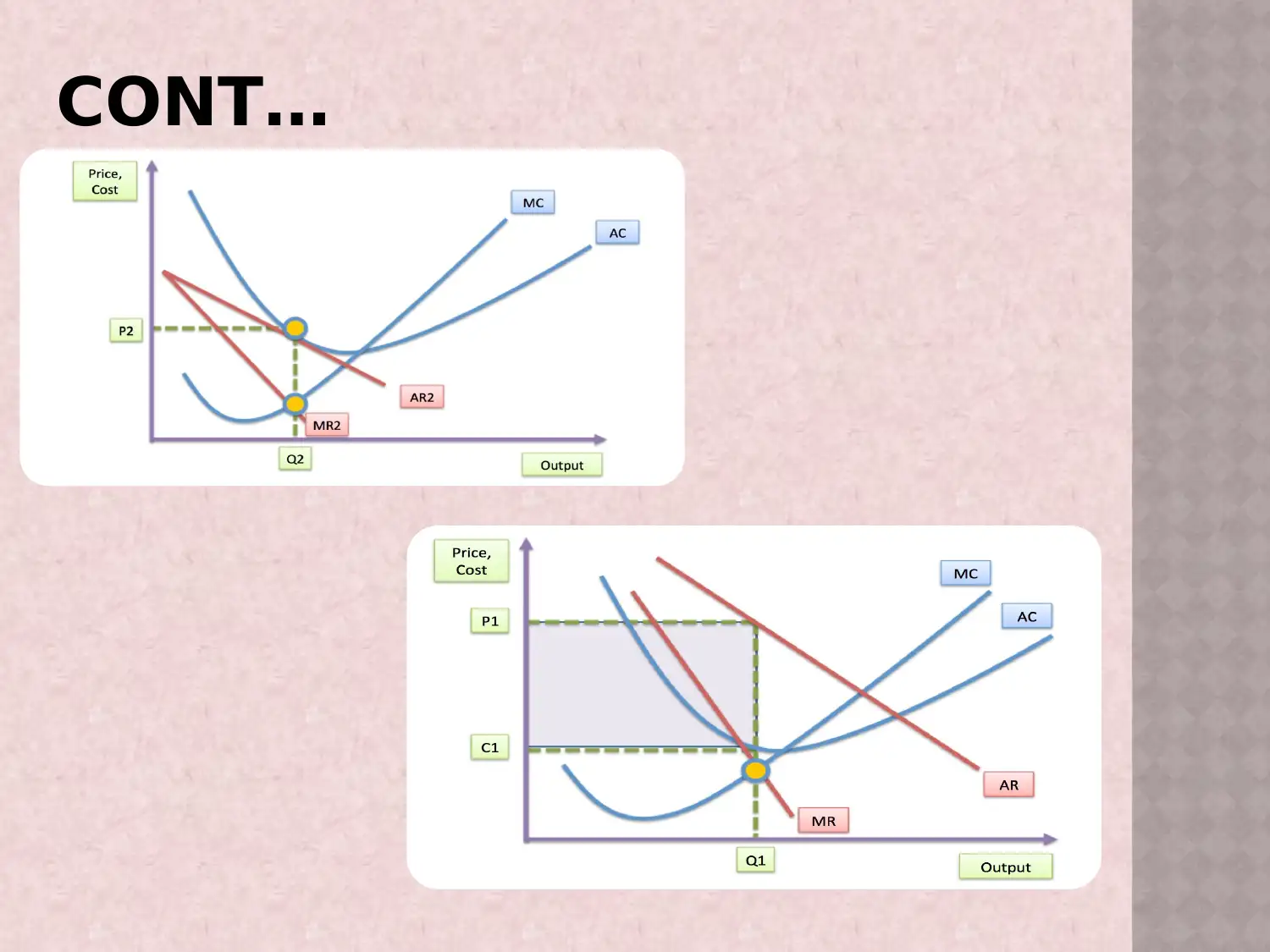
CONT…
⊘ This is a preview!⊘
Do you want full access?
Subscribe today to unlock all pages.

Trusted by 1+ million students worldwide
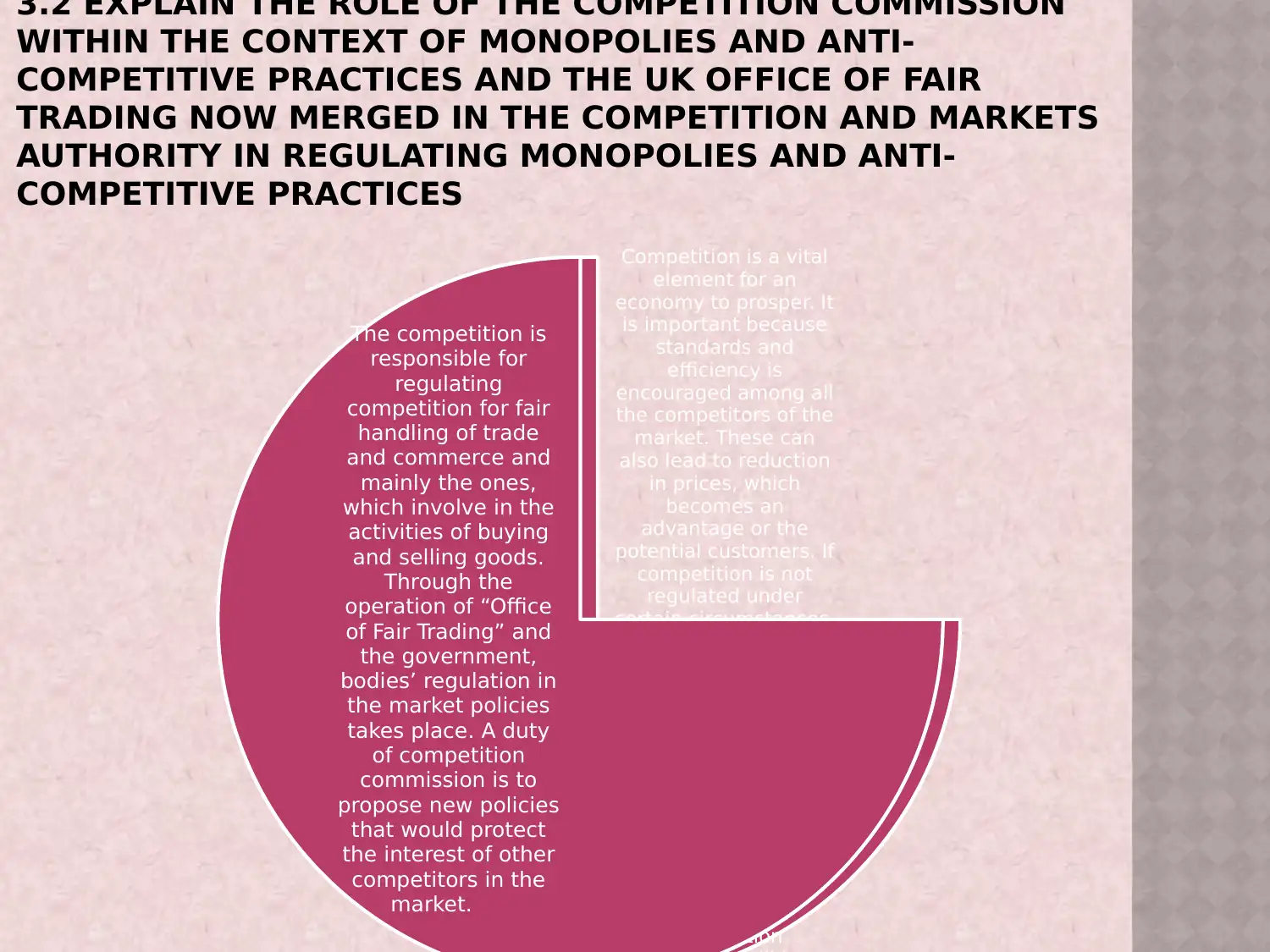
3.2 EXPLAIN THE ROLE OF THE COMPETITION COMMISSION
WITHIN THE CONTEXT OF MONOPOLIES AND ANTI-
COMPETITIVE PRACTICES AND THE UK OFFICE OF FAIR
TRADING NOW MERGED IN THE COMPETITION AND MARKETS
AUTHORITY IN REGULATING MONOPOLIES AND ANTI-
COMPETITIVE PRACTICES
Competition is a vital
element for an
economy to prosper. It
is important because
standards and
efficiency is
encouraged among all
the competitors of the
market. These can
also lead to reduction
in prices, which
becomes an
advantage or the
potential customers. If
competition is not
regulated under
certain circumstances,
chances can occur
that these become
aggressive in nature
and fail to follow the
ethics to earn profits.
This can change the
organization structure
and turn it into a
monopoly power and
thus will dominate
over the market, and
thus to maintain
equilibrium a
competition
The competition is
responsible for
regulating
competition for fair
handling of trade
and commerce and
mainly the ones,
which involve in the
activities of buying
and selling goods.
Through the
operation of “Office
of Fair Trading” and
the government,
bodies’ regulation in
the market policies
takes place. A duty
of competition
commission is to
propose new policies
that would protect
the interest of other
competitors in the
market.
WITHIN THE CONTEXT OF MONOPOLIES AND ANTI-
COMPETITIVE PRACTICES AND THE UK OFFICE OF FAIR
TRADING NOW MERGED IN THE COMPETITION AND MARKETS
AUTHORITY IN REGULATING MONOPOLIES AND ANTI-
COMPETITIVE PRACTICES
Competition is a vital
element for an
economy to prosper. It
is important because
standards and
efficiency is
encouraged among all
the competitors of the
market. These can
also lead to reduction
in prices, which
becomes an
advantage or the
potential customers. If
competition is not
regulated under
certain circumstances,
chances can occur
that these become
aggressive in nature
and fail to follow the
ethics to earn profits.
This can change the
organization structure
and turn it into a
monopoly power and
thus will dominate
over the market, and
thus to maintain
equilibrium a
competition
The competition is
responsible for
regulating
competition for fair
handling of trade
and commerce and
mainly the ones,
which involve in the
activities of buying
and selling goods.
Through the
operation of “Office
of Fair Trading” and
the government,
bodies’ regulation in
the market policies
takes place. A duty
of competition
commission is to
propose new policies
that would protect
the interest of other
competitors in the
market.
Paraphrase This Document
Need a fresh take? Get an instant paraphrase of this document with our AI Paraphraser

3.3 DEFINE DOMINANT POSITIONS WITHIN THE
EU COMMON MARKET GIVING EXAMPLES OF
SUCH BUSINESSES
As stated by the Article 82 of the
charter of European Union that the
organization that holds a dominant
position in the market is not allowed to
abuse competitors or the buyer.
Stronger competitions bring about a
market change and it makes the
business operation tougher for its
competitors. The market comes to
equilibrium when the demand and
supply are equal in the market and
when all sellers have equal
opportunities to earn profits from and
the buyers get an ample number of
options to choose their desired product
from. Example: GlaxoSmithKline, a
monopoly pharmaceutical company in
UK.
EU COMMON MARKET GIVING EXAMPLES OF
SUCH BUSINESSES
As stated by the Article 82 of the
charter of European Union that the
organization that holds a dominant
position in the market is not allowed to
abuse competitors or the buyer.
Stronger competitions bring about a
market change and it makes the
business operation tougher for its
competitors. The market comes to
equilibrium when the demand and
supply are equal in the market and
when all sellers have equal
opportunities to earn profits from and
the buyers get an ample number of
options to choose their desired product
from. Example: GlaxoSmithKline, a
monopoly pharmaceutical company in
UK.
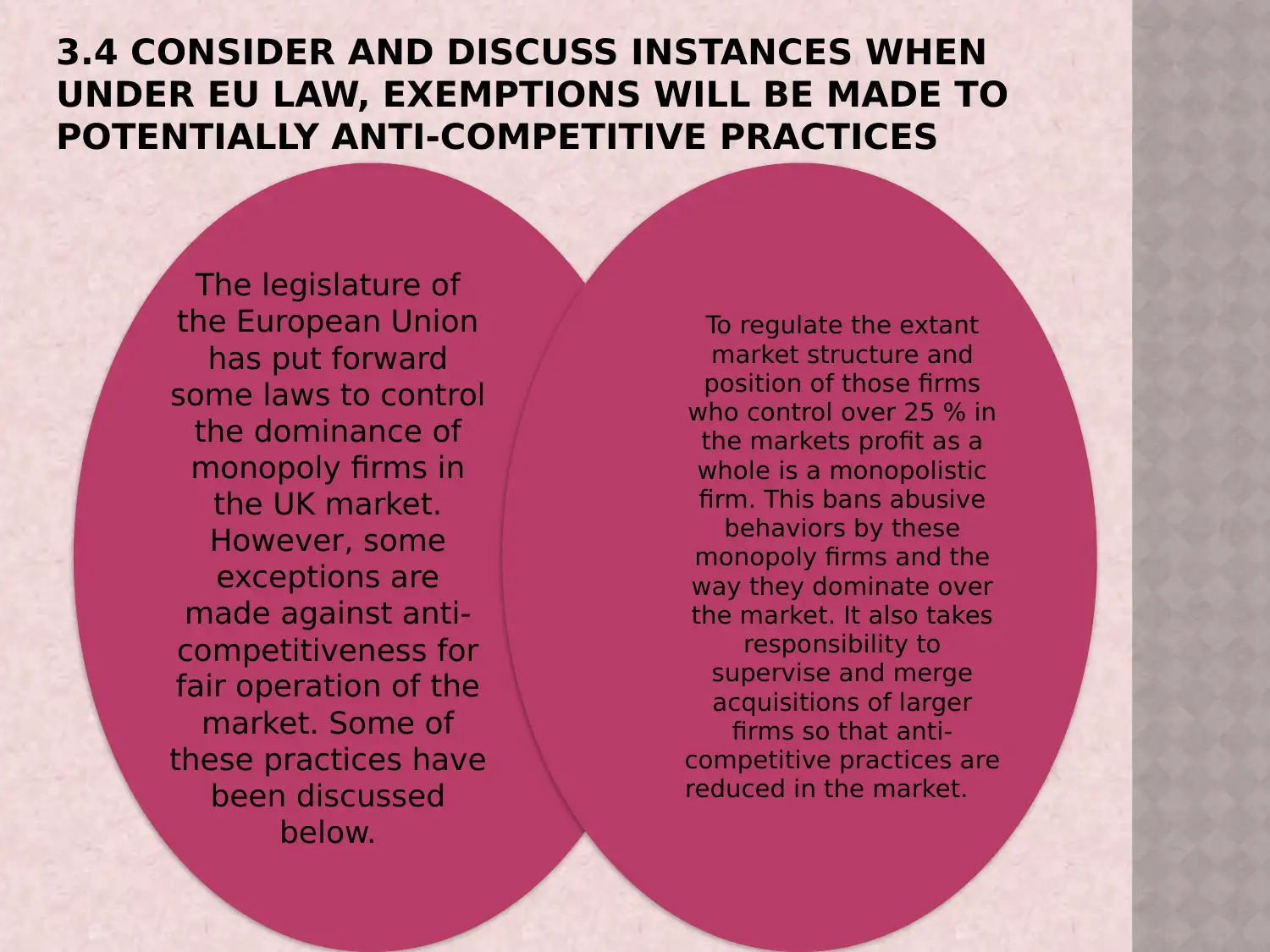
3.4 CONSIDER AND DISCUSS INSTANCES WHEN
UNDER EU LAW, EXEMPTIONS WILL BE MADE TO
POTENTIALLY ANTI-COMPETITIVE PRACTICES
The legislature of
the European Union
has put forward
some laws to control
the dominance of
monopoly firms in
the UK market.
However, some
exceptions are
made against anti-
competitiveness for
fair operation of the
market. Some of
these practices have
been discussed
below.
To regulate the extant
market structure and
position of those firms
who control over 25 % in
the markets profit as a
whole is a monopolistic
firm. This bans abusive
behaviors by these
monopoly firms and the
way they dominate over
the market. It also takes
responsibility to
supervise and merge
acquisitions of larger
firms so that anti-
competitive practices are
reduced in the market.
UNDER EU LAW, EXEMPTIONS WILL BE MADE TO
POTENTIALLY ANTI-COMPETITIVE PRACTICES
The legislature of
the European Union
has put forward
some laws to control
the dominance of
monopoly firms in
the UK market.
However, some
exceptions are
made against anti-
competitiveness for
fair operation of the
market. Some of
these practices have
been discussed
below.
To regulate the extant
market structure and
position of those firms
who control over 25 % in
the markets profit as a
whole is a monopolistic
firm. This bans abusive
behaviors by these
monopoly firms and the
way they dominate over
the market. It also takes
responsibility to
supervise and merge
acquisitions of larger
firms so that anti-
competitive practices are
reduced in the market.
⊘ This is a preview!⊘
Do you want full access?
Subscribe today to unlock all pages.

Trusted by 1+ million students worldwide
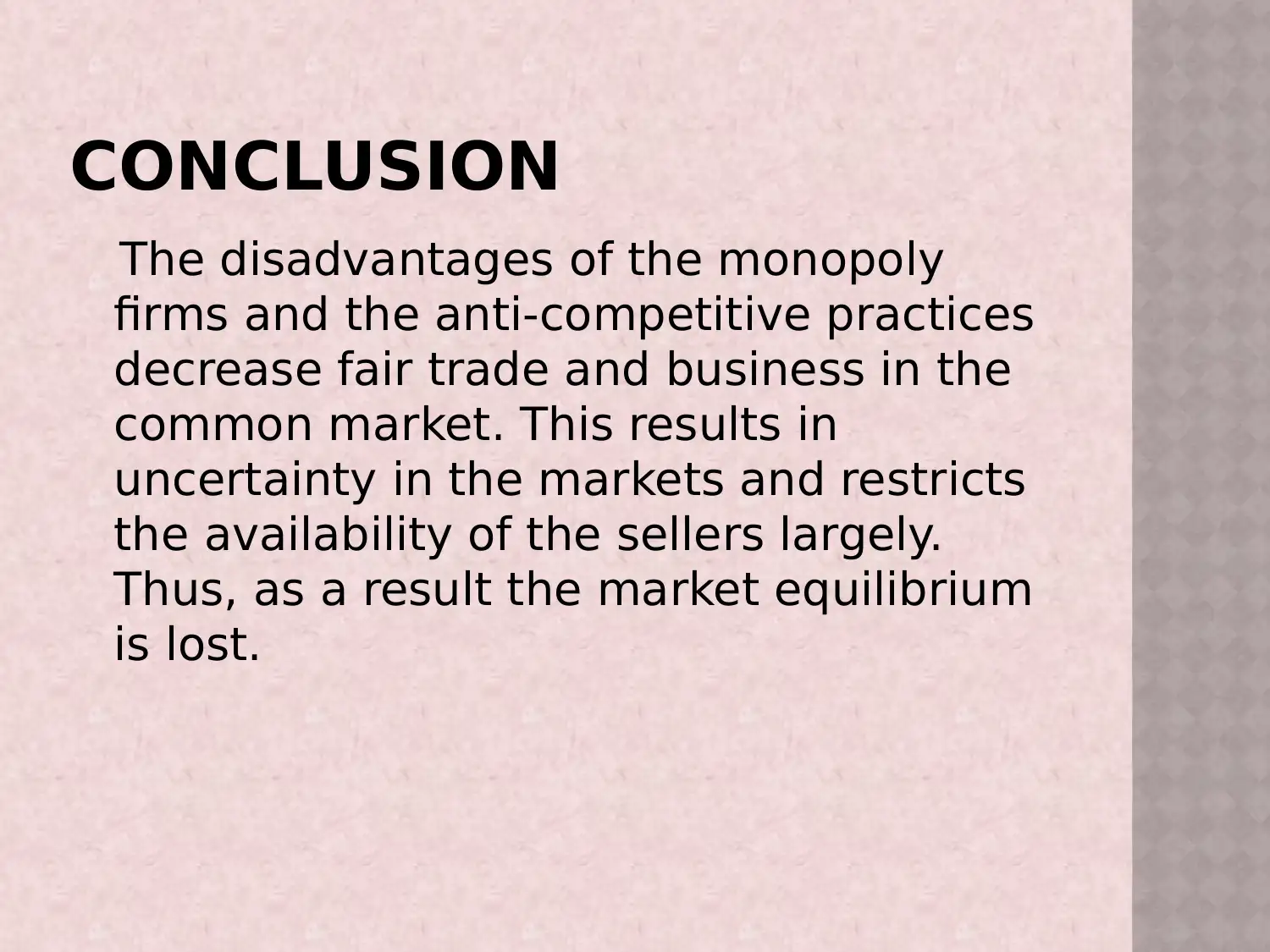
CONCLUSION
The disadvantages of the monopoly
firms and the anti-competitive practices
decrease fair trade and business in the
common market. This results in
uncertainty in the markets and restricts
the availability of the sellers largely.
Thus, as a result the market equilibrium
is lost.
The disadvantages of the monopoly
firms and the anti-competitive practices
decrease fair trade and business in the
common market. This results in
uncertainty in the markets and restricts
the availability of the sellers largely.
Thus, as a result the market equilibrium
is lost.
Paraphrase This Document
Need a fresh take? Get an instant paraphrase of this document with our AI Paraphraser
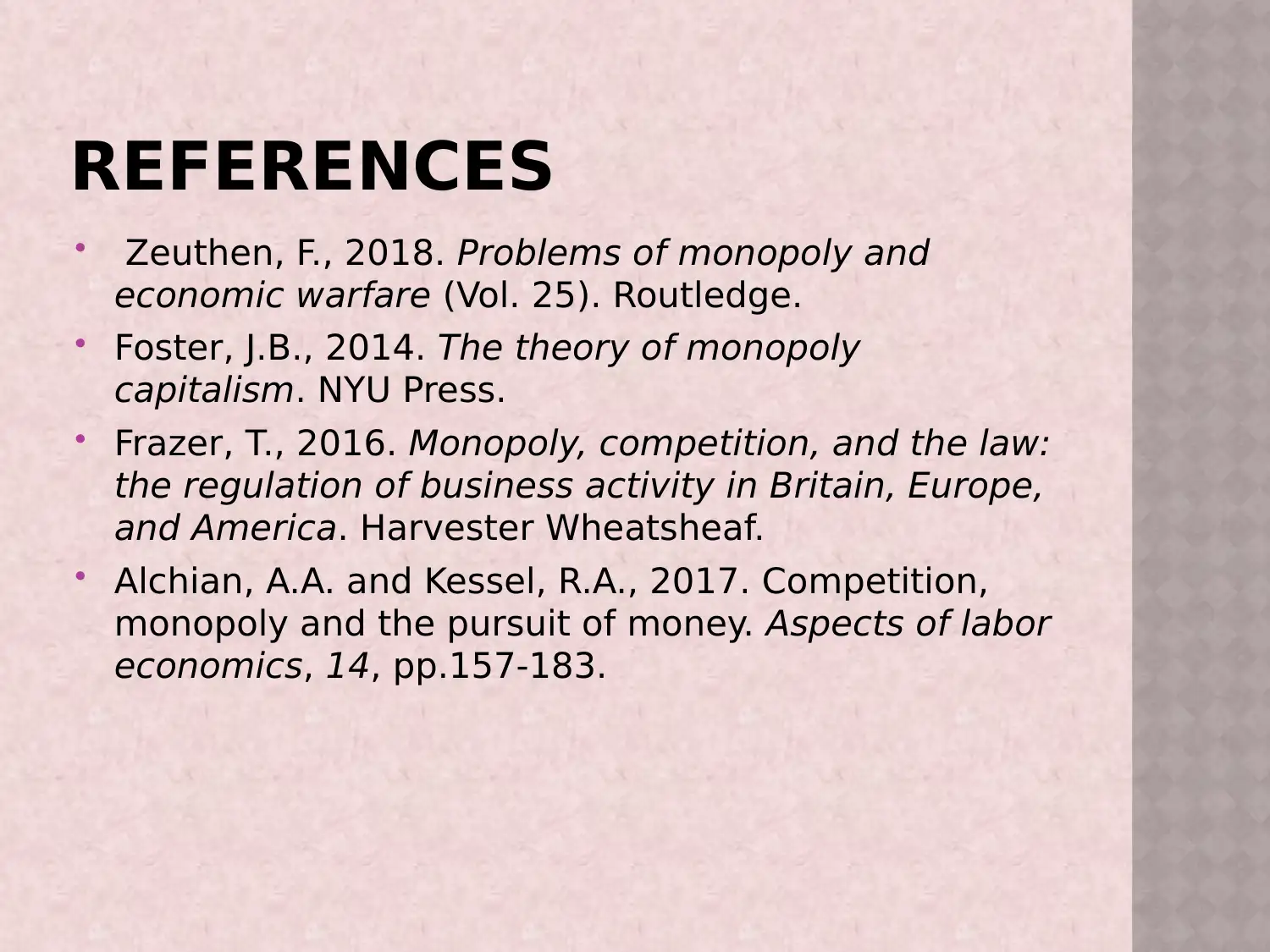
REFERENCES
Zeuthen, F., 2018. Problems of monopoly and
economic warfare (Vol. 25). Routledge.
Foster, J.B., 2014. The theory of monopoly
capitalism. NYU Press.
Frazer, T., 2016. Monopoly, competition, and the law:
the regulation of business activity in Britain, Europe,
and America. Harvester Wheatsheaf.
Alchian, A.A. and Kessel, R.A., 2017. Competition,
monopoly and the pursuit of money. Aspects of labor
economics, 14, pp.157-183.
Zeuthen, F., 2018. Problems of monopoly and
economic warfare (Vol. 25). Routledge.
Foster, J.B., 2014. The theory of monopoly
capitalism. NYU Press.
Frazer, T., 2016. Monopoly, competition, and the law:
the regulation of business activity in Britain, Europe,
and America. Harvester Wheatsheaf.
Alchian, A.A. and Kessel, R.A., 2017. Competition,
monopoly and the pursuit of money. Aspects of labor
economics, 14, pp.157-183.
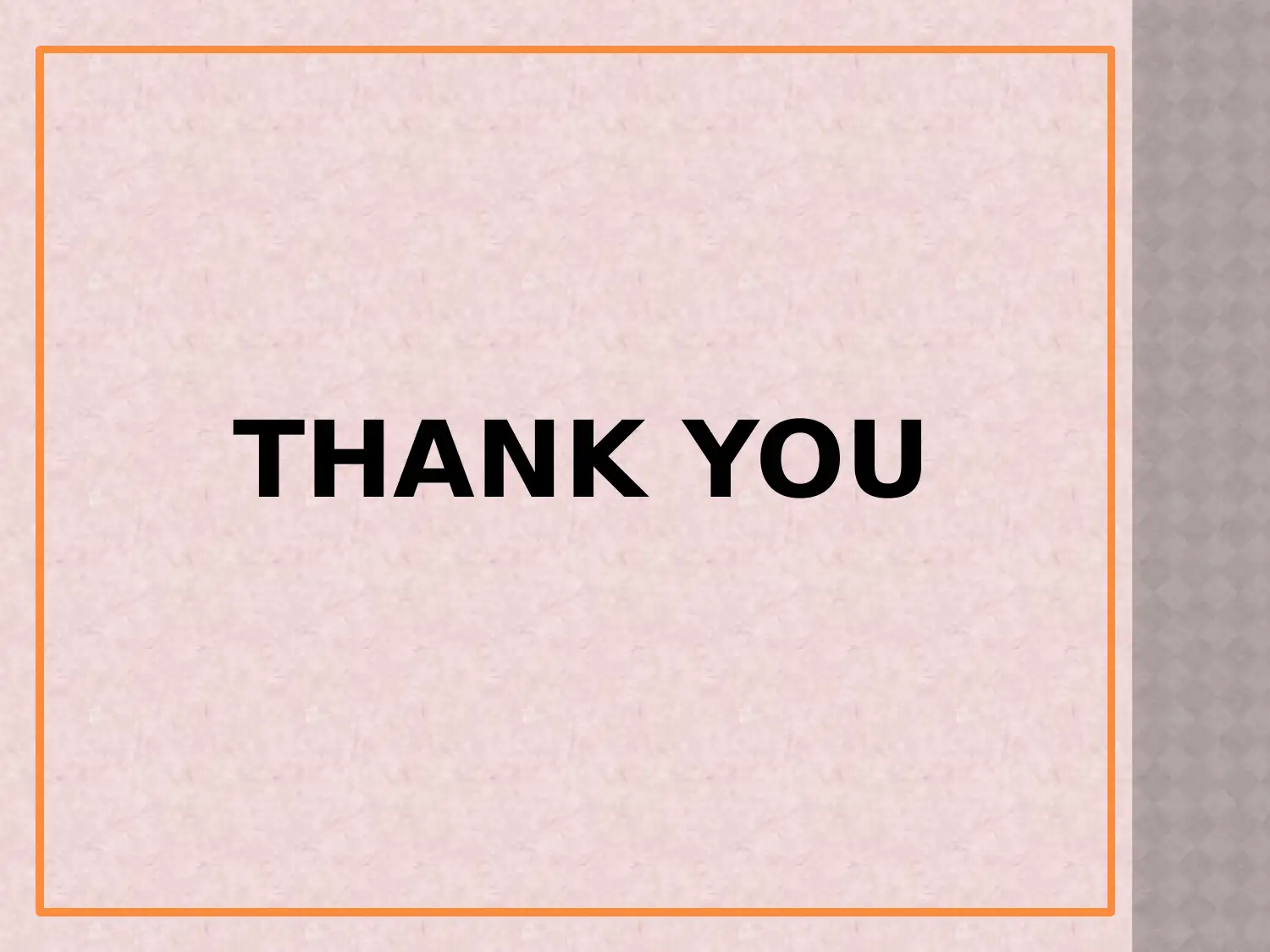
THANK YOU
⊘ This is a preview!⊘
Do you want full access?
Subscribe today to unlock all pages.

Trusted by 1+ million students worldwide
1 out of 12
Related Documents
Your All-in-One AI-Powered Toolkit for Academic Success.
+13062052269
info@desklib.com
Available 24*7 on WhatsApp / Email
![[object Object]](/_next/static/media/star-bottom.7253800d.svg)
Unlock your academic potential
Copyright © 2020–2026 A2Z Services. All Rights Reserved. Developed and managed by ZUCOL.





